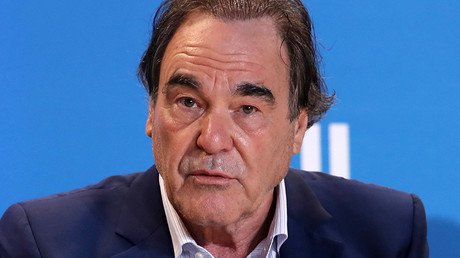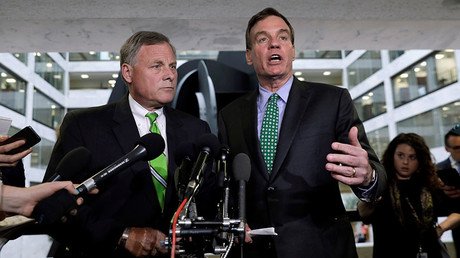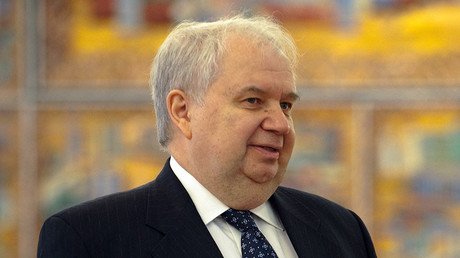‘The simplest things’: Ex-Russian Ambassador Kislyak opens up on what he discussed with Flynn
Now-retired Russian Ambassador to the US Sergey Kislyak said that the main topic of his conversation with former US National Security Adviser Michael Flynn was counter-terrorism. The talks were transparent and never touched upon sanctions, he added.
“I do not comment on our daily contacts with our colleagues. Secondly, I had instructions not to discuss sanctions. We never discussed sanctions with anybody. And I assure you, I have honestly followed the instructions,” Kislyak told Rossiya-24.
“Sanctions aren’t our thing,” the retired diplomat said. “We don’t discuss or bargain about sanctions, because we believe they were implemented in an illegal, politically aggressive way to begin with.”
‘American exceptionalism is the problem’
While it would be difficult to lift the newly-imposed restrictive measures, Kislyak does not believe the US and Russia are back to the Cold War.
“No, it’s not the Cold War,” he said. “The problem in our relations, as I have tried to say, is in the sense of absolute exceptionalism of the Americans and their purported right to tell everyone else what is good and what is bad.”
The former Russian envoy to Washington blasted the sanctions, which he believes are aimed at impeding normal economic cooperation between Russia and the US.
“The economic sanctions, which we have been lately discussing a lot, were designed so that it will be very difficult to cancel them under the current conditions in America,” Kislyak said.
“The whole mechanism is made so that the US law would not give the opportunity to develop normality in economic relations with our country,” he added.
‘No secrets on our part’
Commenting on his conversation with former National Security Adviser Michael Flynn, Kislyak said they were openly discussing “the simplest things.”
“We spoke about the simplest things… But the communication was completely specific, quiet, absolutely transparent. There were no secrets, at least on our part,” he stated.
After Flynn’s resignation in February, media outlets speculated over the content and consequences of his phone call with the Russian ambassador, which he had failed to report. Some claimed the main topic of the conversation was economic sanctions against Russia, though Flynn did not confirm it.
Kislyak declined to comment on the resignation, saying it is an American domestic issue.
The US never invited Kislyak to speak in front of a grand jury investigating alleged Russian meddling in the 2016 election. Kislyak called the procedure “far-fetched” and said that the US government has “jumped at a litigation built around false information,” wasting time that could be used on issues that really matter to Americans.
Meeting foreign officials is what diplomats do
While the Trump election campaign team has been repeatedly accused of having links with Russia, Hillary Clinton’s representatives refused to meet with the Russian ambassador.
“I can give you a long list of those from Clinton’s team who I wanted to visit, and they shied away from it. It’s quite a big list,” Kislyak said.
He added that, like any professional diplomat, he used every opportunity to build normal bilateral relations, trying to meet with different people, including those from the Democratic Party.
Near the end of Kislyak’s tenure in the US, he faced allegations of working for Russian intelligence and was even called a “top spy and recruiter of spies” by CNN. The diplomat believes that even implying such things shames the US.
“I believe that all the talks about the fact that I, the ambassador of the Russian Federation, am a spy, are shameful for a country like America,” Kislyak said.
“What has become normal to talk about now – how the Russian ambassador is wiretapped, how bugs were installed into his phone – it is becoming normal for America. It is an unhealthy society,” he said, adding that the FBI finally acknowledged that he was a diplomat, not a spy.
A heavy distrust of all things Russian is contributing to the paranoid atmosphere around the Kislyak-Flynn meeting, according to Russia author and historian Martin McCauley.
“The problem is that in Washington there’s a very, very strong anti-Russia caucus from the Democrat side, sometimes from the Republicans, and the liberal press. They will literally not accept anything that’s positive about Russia. If the Russians say something, they don’t believe it, and if President Trump says something positive about Russia they say ‘that’s treasonous, you shouldn’t be saying that! Russia is our enemy,’” McCauley told RT.
“Unfortunately, in Washington now you have an impasse. On the one side, President Trump and his people, they would like to improve relations with Russia and get things going and so on. But Congress is doing its best to ensure that relations with Russia deteriorate.”















